|
Dusty Dog Reviews The whole project is hip, anti-academic, the poetry of reluctant grown-ups, picking noses in church. An enjoyable romp! Though also serious. |
|
Nick DiSpoldo, Small Press Review (on Children, Churches and Daddies, April 1997) Children, Churches and Daddies is eclectic, alive and is as contemporary as tomorrow’s news. |



|
Kenneth DiMaggio (on cc&d, April 2011) CC&D continues to have an edge with intelligence. It seems like a lot of poetry and small press publications are getting more conservative or just playing it too academically safe. Once in awhile I come across a self-advertized journal on the edge, but the problem is that some of the work just tries to shock you for the hell of it, and only ends up embarrassing you the reader. CC&D has a nice balance; [the] publication takes risks, but can thankfully take them without the juvenile attempt to shock. |
|
from Mike Brennan 12/07/11 I think you are one of the leaders in the indie presses right now and congrats on your dark greatness. |
Volume 238, November 2012
Internet ISSN 1555-1555, print ISSN 1068-5154

see what’s in this issue...
Note that in the print edition of cc&d magazine, all artwork within the pages of the book appear in black and white.
|
Order this issue from our printer as a paperback book (5.5" x 8.5") perfect-bound w/ b&w pages |
Recently overheard...I heard of a man who once waited outside (then) Senator Barrack Obama’s office, waiting to see him for hours, so he might be able to talk to him. Eventually a man from inside the office came out and asked the gentleman, “Are you waiting to see Senator Obama?”, and the man replied, “Yes.” This is when the man from the office told him that Sentaor Obama won’t be in, because he rides the subway all day and does all of his work off his Blackberry.
|

poetry
the passionate stuff
Luna’s TickedBruce Matteson
I love small town America, I really do, what’s left of it
|

Gallery, art by Brian Forrest
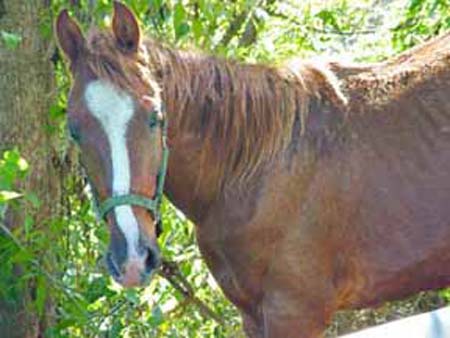
I am not the Trojan horseFritz Hamilton
I am not the Trojan horse/ open
Hellen
who do just that & keep me screaming, but
Hector is chased around my bellybutton, not
anyone who wants it/ I sure don’t/ it’s
dead man lies outside my door preparing to
ferryman has too much pride to ferry
hand shakes as I drink my chocolate milk/ some
history/ my 96-yr-old German mommy tells me to
chocolate milk) I !
|
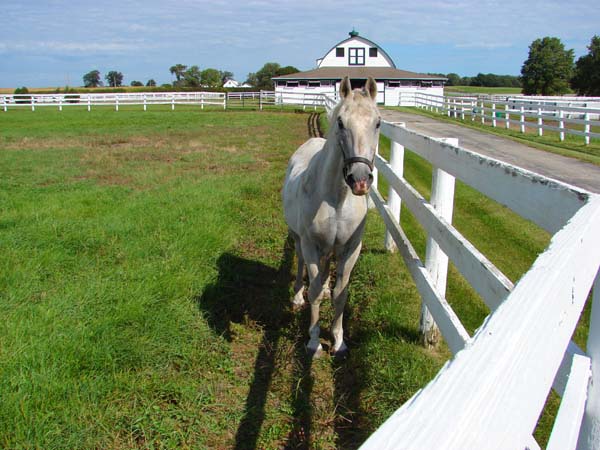
My cup of Jones coffee is poisonedFritz Hamilton<
My cup of Jones coffee is poisoned by
cigar, smoke going up the chimney of
Toys made out of dog bones & football
all we stand for/ my
contribution to our insanity whether she
When it’s over, we’ll know it never began.
But we have our hope & faith to extend our !
|
The statue of unlibertyFritz Hamilton
The statue of unliberty
according to Howard Zinn never lived/ our
numbers too great & intimidating/ our fathers
blacks already discovering they could join the
injuns out of fear for their lives & today we have
form changes but the battle’s the same/ all
humanity & insanity laughing laughing !
|
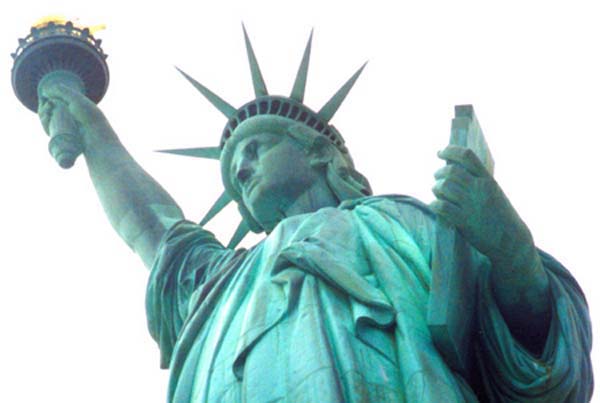
The BumJoseph Hart
At 2 a.m. or so
|
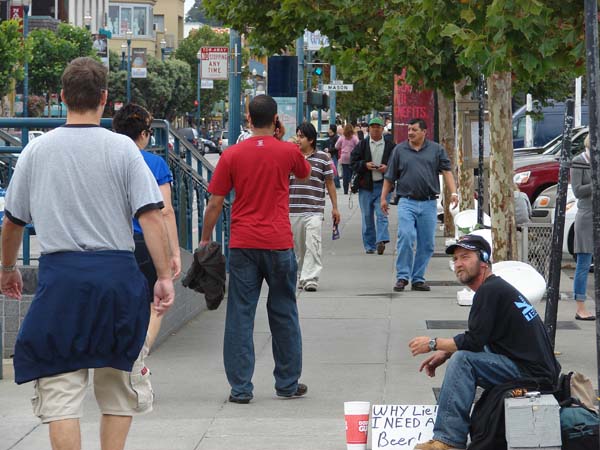
|
Janet Kuypers reads the Joseph Hart November 2012 (v238) cc&d magazine poem the Bum |

See YouTube video of Janet Kuypers reading this poem straight from the November 2012 issue (v111) of cc&d magazine, live 11/7/12 at Gallery Cabaret’s the Café Gallery open mic in Chicago) |
CelebrationJoseph Hart
Do angels fuck? My George is back George is back. Do angels fuck? I wonder. |
On VotingMichael Ceraolo
I try to reason with the unreasonable
|
|
Janet Kuypers reads the Michael Ceraolo November 2012 (v238) cc&d magazine poem on Voting |

See YouTube video of Janet Kuypers reading this poem straight from the November 2012 issue (v111) of cc&d magazine, live 11/7/12 at Gallery Cabaret’s the Café Gallery open mic in Chicago) |

Storage., art by Cheryl Townsend
Black FridayRussell Rowland
As soon as our bowels have moved
Nobody killed this year on Black Friday,
Store doors slid open at digital midnight.
By sunrise, a post-shopping lassitude
ask pardon of the divinity still in diapers
|
Thought, Last Seen Hanging by a ThreadCopyright R. N. Taber 2012
Hear me crying out to humanity,
Watch me dying for humanity
Save me from poor humanity’s
Fly with me for humanity’s sake;
Don’t leave me crying for humanity,
|
Wisconsin’s PrideHarlan Richards
We rode proudly through
|
|
Janet Kuypers reads the Harlan Richards November 2012 (v238) cc&d magazine poem Wisconsin’s Pride |

See YouTube video of Janet Kuypers reading this poem straight from the November 2012 issue (v111) of cc&d magazine, live 11/7/12 at Gallery Cabaret’s the Café Gallery open mic in Chicago) |
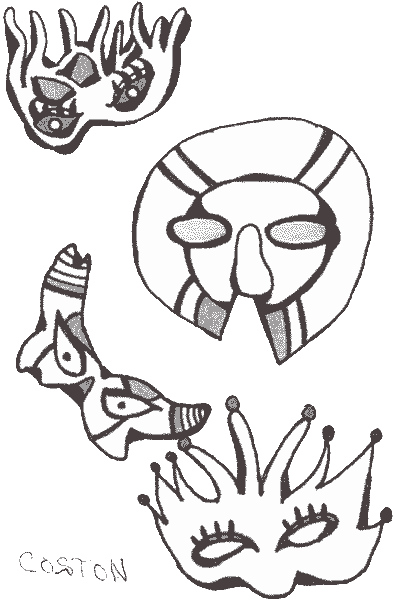
art by George Coston
Moving DayCara Chanoine
The dark spot on the sun-bleached bedroom wall
Instead of helping me pack,
When I packed,
|
Diabetic Service DogBradley Bates
1.
2.
Diabetes dominates families.
Families who can’t help
A reaction sends one to the base
Insulin’s birth, 100 years ago,
|
Brooklyn ShrinkMel Waldman
A dark container and a human garbage bin, I breathe foul air,
Many are crippled by fear, victims of trauma they witnessed,
It’s the unholy stuff of film noir and in the boroughs of New
They come to me, the Brooklyn shrink, and slowly, shed
They furiously exhale their psychological and physiological
and leave a gaping hole in my quintessence. When I inhale
I must cleanse my being, for tomorrow, I will breathe the
I’m the Brooklyn shrink. Each day, I risk my life.
Such is the way of a shrink and healer.
|
BIOMel Waldman, Ph. D.Dr. Mel Waldman is a licensed New York State psychologist and a candidate in Psychoanalysis at the Center for Modern Psychoanalytic Studies (CMPS). He is also a poet, writer, artist, and singer/songwriter. After 9/11, he wrote 4 songs, including “Our Song,” which addresses the tragedy. His stories have appeared in numerous literary reviews and commercial magazines including HAPPY, SWEET ANNIE PRESS, CHILDREN, CHURCHES AND DADDIES and DOWN IN THE DIRT (SCARS PUBLICATIONS), NEW THOUGHT JOURNAL, THE BROOKLYN LITERARY REVIEW, HARDBOILED, HARDBOILED DETECTIVE, DETECTIVE STORY MAGAZINE, ESPIONAGE, and THE SAINT. He is a past winner of the literary GRADIVA AWARD in Psychoanalysis and was nominated for a PUSHCART PRIZE in literature. Periodically, he has given poetry and prose readings and has appeared on national T.V. and cable T.V. He is a member of Mystery Writers of America, Private Eye Writers of America, American Mensa, Ltd., and the American Psychological Association. He is currently working on a mystery novel inspired by Freud’s case studies. Who Killed the Heartbreak Kid?, a mystery novel, was published by iUniverse in February 2006. It can be purchased at www.iuniverse.com/bookstore/, www.bn.com, at /www.amazon.com, and other online bookstores or through local bookstores. Recently, some of his poems have appeared online in THE JERUSALEM POST. Dark Soul of the Millennium, a collection of plays and poetry, was published by World Audience, Inc. in January 2007. It can be purchased at www.worldaudience.org, www.bn.com, at /www.amazon.com, and other online bookstores or through local bookstores. A 7-volume short story collection was published by World Audience, Inc. in June 2007 and can also be purchased online at the above-mentioned sites. |
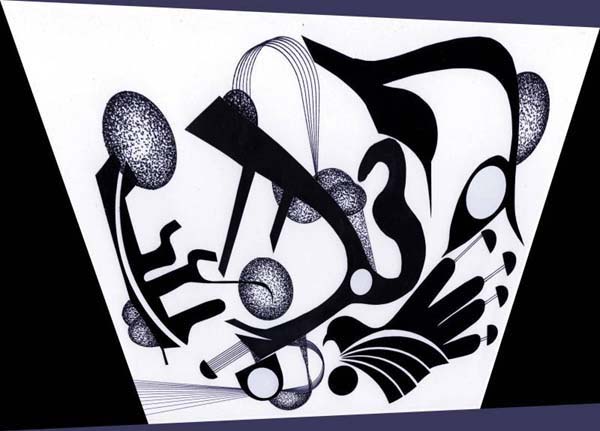
19-10-2010 VDMK, art by Üzeyir Lokman ÇAYCI
The Color of PrayerLinda Webb Aceto
I lose the thoughts
Caught in the glare of
|
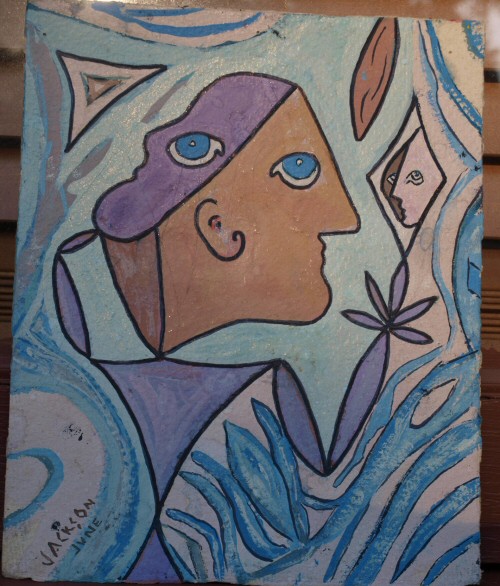
Mirror (Original), art by David Michael Jackson
Still Hoping for ChangeJohn Yotko20121024
Third party votes
|
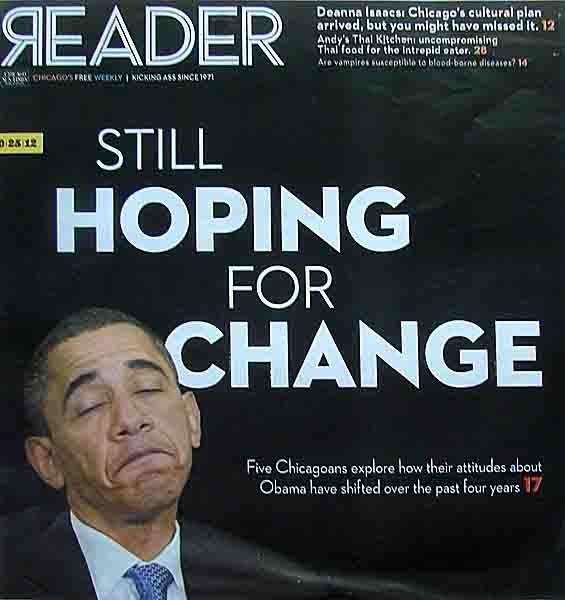
When looking for a title to this poem, John thought the headline on the (at the time) current issue of the Chicago Reader
newspaper was perfect: Still Hoping for Change (with a great Getty imnage of President Obama on the cover).
|
John reads his poem Still Hoping for Change |

See YouTube video of John reading his poem live 10/24/12 at Gallery Cabaret’s the Café Gallery open mic in Chicago) |
The Moment at HandMichael S. Morris
there it is -
like a quarter moon
and colors awoke
|
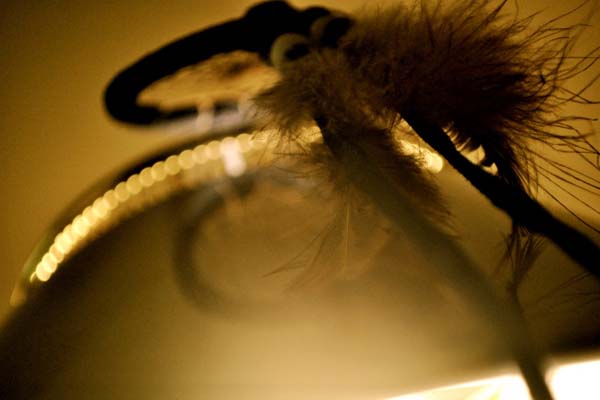
Catch my Dreams, art by Peter LaBerge
Poem from The Metaphysical
Kenneth DiMaggio |
Obama on the SubwayJanet Kuypers(02/08;/12)
Senator Obama
|
Obama on the Subway (twitter-length poem)

Watch the YouTube video of Kuypers reading this poem at the open mike 2/15/12 at Gallery Cabaret’s the Café Gallery in Chicago, from the Samsung |

Watch the YouTube video of Kuypers’ intro to the open mike 2/15/12 at Gallery Cabaret’s the Café Gallery in Chicago, plus other open mike poets, and her poetry (from the Kodak) |

|
Fit Together Like ThatJanet Kuypers7/15/12
So on sale
|
Vegetarian Stands
Janet Kuypers |

Watch the YouTube video of Kuypers reading this poem at the open mike 5/9/12 at Gallery Cabaret’s the Café Gallery in Chicago (W/ by live piano music from Gary) |

Watch the YouTube video of Kuypers’ open mike 5/9/12 at Gallery Cabaret’s the Café Gallery in Chicago, plus her poetry (w/ live piano from Gary) |
Over and Over AgainJanet Kuypers5/3/12
So I work here at the front of the store
And it makes me think:
I mean, does this deli at this store
Do they get vats of chicken parts
...I’m sure they don’t get their hands dirty
Then do they have to appropriately separate,
Toward the end of the day, if some animals
I mean, I work here at the front of the store,
|

Watch the YouTube video of Kuypers reading this poem 5/9/12 at Gallery Cabaret’s the Café Gallery in Chicago (W/ by live piano music from Gary) from the Sony |
Janet Kuypers Bio
Janet Kuypers has a Communications degree in News/Editorial Journalism (starting in computer science engineering studies) from the UIUC. She had the equivalent of a minor in photography and specialized in creative writing. A portrait photographer for years in the early 1990s, she was also an acquaintance rape workshop facilitator, and she started her publishing career as an editor of two literary magazines. Later she was an art director, webmaster and photographer for a few magazines for a publishing company in Chicago, and this Journalism major was even the final featured poetry performer of 15 poets with a 10 minute feature at the 2006 Society of Professional Journalism Expo’s Chicago Poetry Showcase. This certified minister was even the officiant of a wedding in 2006. |

prose
the meat and potatoes stuff
The RealizationBrian LooneyI Well there’s a lot of things I do for money that I don’t like. Why do you expect to me grin when I do it, to enjoy the flavor of the labor? Pardon me for not kissing the earth at your feet. I“Be content with what you have.” That same old tired drag. It maintains the rich, and it pacifies the poor, a passive containment. I disregard that listless half, the cramp that needs ambition. I I just can’t let it go too far, but it’s not as easy as that. There’s no warning when it goes too far. Suddenly it’s just too far, and the realization chills.
|

Fly, art by Oz Hardwick
OutsiderismEric Burbridge
The upgrade to African-American can be a rewarding process. Those interested individuals, submit U.S. Form 92 for consideration. Your request will be kept in the strictest confidence. Socio-economic Accords of 2044 grant this upgrade automatically to mixed Blacks.
Osama Wei, M.D., Director of the Silas Purneel Education and Medical Complex analyzed the data next to photos taken at the mobile upgrade center across the Sal-Sag Channel. The female applicants from ages fifteen to nineteen had been scrutinized thoroughly. Now they searched for one last candidate. The Provincial Government insisted on an Affirmative Action Recruitment program. Fine by the Chinese, they agreed to take applications for one day twice a year. And, of course, the units weren’t easy to find. Wei stared at the profile of the black one, Naomi Obo; IQ-206. 206! That wasn’t right. It couldn’t be. Wei exited the files and ran a diagnostic; no glitches. He re-opened it; IQ-206. The highest he had ever seen. A Black female with an IQ that high might be killed if her peers found out.
George Wielinski reeled in the line to replace the bait that fish managed to nibble away. You won’t get the next one. He dug in the can of worms and wrapped it around the hook. How did that Chinaman know he was fishing? The first time he took a sick day, the boss calls. Just his luck. That’s what he got for sharing fish stories. He’d sat on that rock long enough. His behind hurt and his weight and wide body gave his arthritic knees hell. But, the peace and tranquility was worth the discomfort. The shade from the trees along the river’s still waters didn’t provide much relief from the sticky humidity. He smacked and fanned mosquitoes, and hit the speed dial.
Naomi looked out the window at the five mile long business district of 150th Street. She couldn’t afford to be seen by any of her peers. They frowned on those wanting to upgrade. Whether you were Black, White or Hispanic, you could easily get beaten to death. If you were eligible, don’t mention it. She stepped into the heat and hurried down the wood planked walkway through the muddy vacant lot to a service drive behind some stores. She stashed the package Anselmo gave her in a dumpster.
Naomi stepped out from under the canopy and looked. No buses. The transit authority took better care of this turn around than the one in Robbins. A small park with a playground wrapped around the waiting area. The benches were well shaded with plenty of ashtrays and garbage cans. What used to be buckled asphalt was now concrete and a new charging station. No buses sat and waited for the next one. That was unusual.
Naomi stopped and ran in place and listened to a group of musicians play the bongo drums. Tall incense sticks burned and swayed in the brisk breeze. The pleasant aroma aggravated her sinus, so she moved on. She approached the corner and saw an enclosed personal two-wheeled vehicle slow when it passed the light. The silhouette behind the wheel looked familiar. The vehicle stopped. A boxy built female with close shopped blonde hair got out.
Detective Pamela Nocee was pissed. How could she let that young girl make her? She sped down 145th Street, the next thru street to the 150. When Naomi Obo’s picture popped up on the screen she was clean, but she figured she might be related to Anselmo Obo. This could be big. She had been tailing him for contraband and ID fraud. She weaved in and out of traffic, dodging balls and kid’s toys, trying to get an observable distance ahead of the suspect.
Naomi walked up the hill and turned on to the 150. She looked up and saw two free floaters perched on a charge tower. They dropped to marquee level. People started to slow down; some stopped anticipating being scanned. Naomi took a deep breath and exhaled. The machines floated a few feet above her, one in front, the other in back. She stopped. ID please, it said. Naomi took it out and held it up. A beam focused on it. Wear your ID so it can be seen, thank you. Their lights flashed and then they flew in the opposite direction.
Dr. Wei looked at the profile of Naomi Obo. Great looks and a genius, IQ 206. He’d gotten anxious about this one, nothing could go wrong. He hit a button. “George, tell me something.”
Naomi looked down 155th Street, only a few children played in the gated front yards of the row houses. Older people usually stayed inside until late in the afternoon. This portion of the south residential was peaceful most of the time. The absence of vehicles contributed to the quiet. No look-outs. No people waiting around for whatever. She maintained a steady pace; jogging wasn’t common in these parts. So anything faster would be like running. Soon, everybody would hear about a stranger passing through. Just don’t stop. She approached a bank of cluster mail boxes; on top a series of large screen info-boards rotated and displayed various information. Naomi stopped and got a sip of water. A couple of short fat teen females walked by, smiled and made some hand signals, then wiggled their rows of earrings. Naomi looked and smiled. They did it again. Naomi got ready to run, “I’m not with you.”
George Wielinski adjusted the audio on his binoculars. It had to be the static. He couldn’t believe Nocee put a price on Naomi Obo’s head. He stressed discretion. He shook the device and re-focused. She still had a big blonde guy by the collar shaking and cussing him out. Who else did she have looking for the young girl? Nocee could no longer be trusted; she’s out, but he had to follow her until he found Naomi.
“Milo, are you sure that thing can keep track of her PPSU (personal police survelliance unit)?”
Where’s that floater? Naomi leaned the bike against a tree by the basket ball courts. It’s around here somewhere in the trees. Those huge branches that towered over the three story row houses would be the ideal place to hide. Many of the branches grew into the broken windows. Maybe it’s camouflaged. She looked up the road; just over the hill across the field, a maze of bike and jogging paths, the only thing between her and the center. Young people congregated by the play lot and courts. Everybody looked at their phones. Something’s wrong. Maybe Blondie got up and called his friends. Time to go. If that floater showed up, she’d duck into the mazes and hopefully, lose it.
“Wielinski.”
Naomi reached upward in the scan tube with tears in her eyes. She’d made it, thank God. Her clothes were dirty, torn and she could smell herself, but she made it. She screamed with inward joy. Nocee almost had her, but that wrong turn did the trick. Whatever she had on her, which should be nothing, she didn’t have to worry about that cell bike. When she parked, a couple of teens saw it unlocked and went for a ride. A text from Anselmo made her heart light and heavy. “Don’t forget me or the plan. God bless. Anselmo.”
|
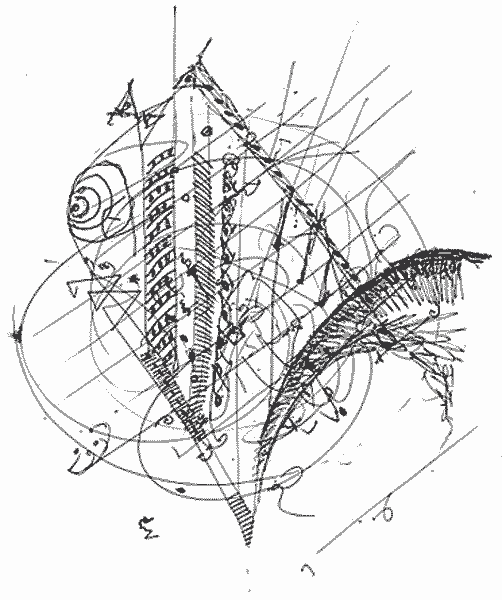
Balance, drawing by the HA!man of South Africa
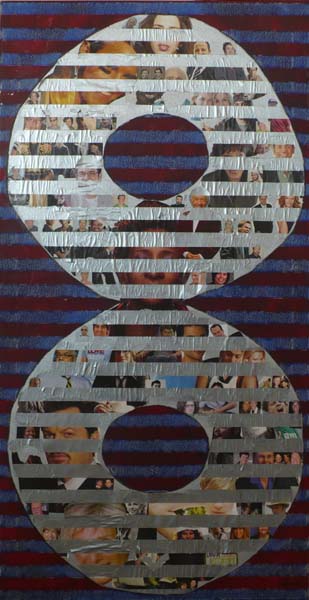
The Myth of the Left Coast, art by Aaron WilderAaron Wilder
Surviving Santa FeBob Johnston
Here we were, four Jacks at an AA meeting. That seemed like a pretty weird coincidence, even in Santa Fe in 1976. To tell us apart, we all got different handles. Boston Jack came from Boston and never let you forget it. Triple-X Jack worked in the local porno theater. They called me Frenchy Jack because of my last name, Lafayette, and my two percent or so French—which came down along with my name from a randy fur trapper about eight generations back.
Even without romanticizing the cowboy life, I could see that Cowboy Jack was special. He didn’t talk much in meetings and he obviously wasn’t well educated, but his few words always made sense. Listening to him, I picked up a lot of good tips on how to stay sober. It was more than ten years since his last drink, so I figured he must be doing something right.
One night before our meeting started, C-Jack and I were standing outside for a last-minute smoke. I asked him if he had ever hit the rodeo circuit. He said no, he’d worked twenty years on a ranch south of Santa Fe, right up to a year ago. “Besides me, there was only Joe and Ole. Now Joe’s a Mexican, but a helluva good guy and smart too. Ole’s a big Swede, heart the size of a barn, and real good at handlin’ cattle. Just us three, and we had to ride thirty miles of fence and check the stock tanks. Break the ice in the winter and take out hay to them dumb critters. At brandin’ time, we stayed out there for however long it took to round ’em up. Pretty hard life but I was used to it, and I didn’t know nothin’ else. Prob’ly woulda kept goin’ till I died, but then I got busted up, and that’s why I’m here in Santa Fe, workin’ at a lousy job.”
I finally heard a good part of his story, one night after a meeting. As usual, a bunch of us had gone to the Inn at the Loretto for coffee. It was a pretty relaxed place in those days. None of the help objected if we sat around for a couple of hours, and they even poured us one refill after another while we rehashed the meeting. That night, everybody else from our group went home early, leaving Cowboy Jack and me, two Jacks with no place we particularly wanted to go, especially home.
I’d let my coffee grow cold while I listened to C-Jack’s story. “How could Biddle treat you like that?” I asked. “How could he live with himself afterward?”
I got the next installment of his story the following Sunday morning. It was his day off, and I happened to spot him stretched out under a shade tree in the Alto Street park. He had his hat over his face and seemed to be asleep, but he sat up as soon as he heard me scrunching along the gravel path. “Howdy, young feller,” he said. “Mighty nice grass here. Why don’t you set for a spell and enjoy it?”
I found it hard to believe that anyone would send C-Jack off on a twenty-mile ride when he was just out of the hospital with a mangled leg. I asked him, “How did you ever make it to Santa Fe, the shape you were in?”
I thought I’d get the rest of the story that night, but Cowboy Jack didn’t come to the meeting, and then he just dropped out of sight without leaving a ripple. I really missed the guy. Things weren’t going well for me. I didn’t have a decent job, and I’d used up almost all my savings. I still went to three meetings a week, but everybody seemed to be mouthing the same old clichés that I couldn’t relate to. Somehow, C-Jack had been the only one who made any sense. He’d become a big factor in my sobriety, and now I worried about a slip, afraid that I’d take that first drink.
I usually ate lunch at the counter in the old Woolworth’s on the Plaza. This particular day, as I was standing in line to pay my ticket, I saw a sort of miniature stagecoach out front, stopping to let off a couple of tourists. The rig was in the shade, but it stood out because of the bright gold paint. I got only a quick look at the driver, who was wearing some sort of a weird outfit, but he did look familiar. By the time I paid my bill and got out the door, the stagecoach had disappeared. I cut across the Plaza and finally spotted the rig, stopped a couple of blocks north on Sheridan. The driver did look like Cowboy Jack, but I couldn’t be sure from that distance. I ran those two blocks and puffed up to the coach just in time to see the driver haul out two buckets from the back of the coach and set them down in front of the horse. Then he straightened up, and it was Cowboy Jack, all right. I walked up to him, held out my hand, and said “Hi, Jack.”
The next time I saw Cowboy Jack, his rig was stopped in the shade on East Palace. Millie was just standing with her head hanging down, and C-Jack was sitting on the curb. I got out of my car and sat down beside him. After we’d exchanged howdies, I asked him how things were going, and he said okay. He didn’t volunteer anything else, so I asked “How’d you come to take on this job driving tourists around?”
A couple of weeks later, I was in the LaSalle Gallery, where they’d just opened an exhibit of bronzes from Russia. The gallery, a few blocks up Canyon Road, was one of the old-timers. Pierre and Michelle LaSalle started it on a shoestring in the 1940s, and it grew into one of the biggest and best in Santa Fe. The Russian bronzes were fabulous, and I was about halfway through them when I heard a ruckus out on the street—car horns and shouts. I walked out onto the sidewalk, and there was Cowboy Jack with his rig, which had somehow got crosswise in the street and was blocking traffic, maybe a dozen cars each direction. Jack’s passengers were a big fat guy in a white suit and white ten-gallon hat—probably a Texan—and a much younger woman with a mess of black hair piled up on top of her head. Jack was on the driver’s seat, trying to get Millie to straighten out the rig. Tex was yelling at Jack, something about getting this goddam rig squared away; and Jack was talking into his microphone with the volume turned up so you could hear him all over the street: “Now just take it easy, mister, and we’ll be up and runnin’ right soon.”
|

Walls at Uxmal, photography by Brian Hosy and Lauren Braden
When your Kids Make you Proud to Be their FatherJ. Kent Allred
My seven-year-old son has been the light of my life up until this last summer, when I have found myself a little embarrassed to be around him. The first situation happened on our trip to Florida in May.
|
Crazy for YouMichael Trainor
“I’m so in love with you,” she said, still holding the gun to my head. We’ve been here in this gas station for a good two and a half hours and she hasn’t once taken the gun away from my head —except to tell the clerk and the few customers who wandered into the station to get down on the ground and put their hands on their heads.
|
Let Me Count The Ways...Allee Petroski
“I’ll show that asshole,” Stacy said, blinking back tears as she pulled the car door shut behind her. Fastening her seatbelt and sniffling uncontrollably, she pushed the radio knob, trying to find some form of comfort in music. Comfort was quickly replaced with defeat as the opening piano notes of “Without You” by Nilsson flooded the speakers.
|
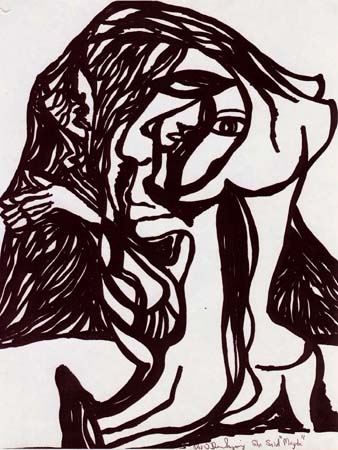
She Said Maybe, art by Edward Michael O’Durr Supranowicz

Debra Purdy Kong, writer, British Columbia, Canada I like the magazine a lot. I like the spacious lay-out and the different coloured pages and the variety of writer’s styles. Too many literary magazines read as if everyone graduated from the same course. We need to collect more voices like these and send them everywhere.
Children, Churches and Daddies. It speaks for itself. Write to Scars Publications to submit poetry, prose and artwork to Children, Churches and Daddies literary magazine, or to inquire about having your own chapbook, and maybe a few reviews like these.
what is veganism? A vegan (VEE-gun) is someone who does not consume any animal products. While vegetarians avoid flesh foods, vegans don’t consume dairy or egg products, as well as animal products in clothing and other sources. why veganism? This cruelty-free lifestyle provides many benefits, to animals, the environment and to ourselves. The meat and dairy industry abuses billions of animals. Animal agriculture takes an enormous toll on the land. Consumtion of animal products has been linked to heart disease, colon and breast cancer, osteoporosis, diabetes and a host of other conditions. so what is vegan action?
We can succeed in shifting agriculture away from factory farming, saving millions, or even billions of chickens, cows, pigs, sheep turkeys and other animals from cruelty. A vegan, cruelty-free lifestyle may be the most important step a person can take towards creatin a more just and compassionate society. Contact us for membership information, t-shirt sales or donations.
vegan action
Children, Churches and Daddies no longer distributes free contributor’s copies of issues. In order to receive issues of Children, Churches and Daddies, contact Janet Kuypers at the cc&d e-mail addres. Free electronic subscriptions are available via email. All you need to do is email ccandd@scars.tv... and ask to be added to the free cc+d electronic subscription mailing list. And you can still see issues every month at the Children, Churches and Daddies website, located at http://scars.tv
MIT Vegetarian Support Group (VSG)
functions: We also have a discussion group for all issues related to vegetarianism, which currently has about 150 members, many of whom are outside the Boston area. The group is focusing more toward outreach and evolving from what it has been in years past. We welcome new members, as well as the opportunity to inform people about the benefits of vegetarianism, to our health, the environment, animal welfare, and a variety of other issues.
Dusty Dog Reviews: These poems document a very complicated internal response to the feminine side of social existence. And as the book proceeds the poems become increasingly psychologically complex and, ultimately, fascinating and genuinely rewarding.
Dusty Dog Reviews: She opens with a poem of her own devising, which has that wintry atmosphere demonstrated in the movie version of Boris Pasternak’s Doctor Zhivago. The atmosphere of wintry white and cold, gloriously murderous cold, stark raging cold, numbing and brutalizing cold, appears almost as a character who announces to his audience, “Wisdom occurs only after a laboriously magnificent disappointment.” Alas, that our Dusty Dog for mat cannot do justice to Ms. Kuypers’ very personal layering of her poem across the page.
Fithian Press, Santa Barbara, CA Indeed, there’s a healthy balance here between wit and dark vision, romance and reality, just as there’s a good balance between words and graphics. The work shows brave self-exploration, and serves as a reminder of mortality and the fragile beauty of friendship.
Mark Blickley, writer You Have to be Published to be Appreciated. Do you want to be heard? Contact Children, Churches and Daddies about book or chapbook publishing. These reviews can be yours. Scars Publications, attention J. Kuypers. We’re only an e-mail away. Write to us.
The Center for Renewable Energy and Sustainable Technology The Solar Energy Research & Education Foundation (SEREF), a non-profit organization based in Washington, D.C., established on Earth Day 1993 the Center for Renewable Energy and Sustainable Technology (CREST) as its central project. CREST’s three principal projects are to provide: * on-site training and education workshops on the sustainable development interconnections of energy, economics and environment; * on-line distance learning/training resources on CREST’s SOLSTICE computer, available from 144 countries through email and the Internet; * on-disc training and educational resources through the use of interactive multimedia applications on CD-ROM computer discs - showcasing current achievements and future opportunities in sustainable energy development. The CREST staff also does “on the road” presentations, demonstrations, and workshops showcasing its activities and available resources. For More Information Please Contact: Deborah Anderson dja@crest.org or (202) 289-0061
Dorrance Publishing Co., Pittsburgh, PA want a review like this? contact scars about getting your own book published.
 The magazine Children Churches and Daddies is Copyright © 1993 through 2012 Scars Publications and Design. The rights of the individual pieces remain with the authors. No material may be reprinted without express permission from the author. 
Okay, nilla wafer. Listen up and listen good. How to save your life. Submit, or I’ll have to kill you.
Dorrance Publishing Co., Pittsburgh, PA: “Hope Chest in the Attic” captures the complexity of human nature and reveals startling yet profound discernments about the travesties that surge through the course of life. This collection of poetry, prose and artwork reflects sensitivity toward feminist issues concerning abuse, sexism and equality. It also probes the emotional torrent that people may experience as a reaction to the delicate topics of death, love and family. “Chain Smoking” depicts the emotional distress that afflicted a friend while he struggled to clarify his sexual ambiguity. Not only does this thought-provoking profile address the plight that homosexuals face in a homophobic society, it also characterizes the essence of friendship. “The room of the rape” is a passionate representation of the suffering rape victims experience. Vivid descriptions, rich symbolism, and candid expressions paint a shocking portrait of victory over the gripping fear that consumes the soul after a painful exploitation.
Dusty Dog Reviews (on Without You): She open with a poem of her own devising, which has that wintry atmosphere demonstrated in the movie version of Boris Pasternak’s Doctor Zhivago. The atmosphere of wintry white and cold, gloriously murderous cold, stark raging cold, numbing and brutalizing cold, appears almost as a character who announces to his audience, “Wisdom occurs only after a laboriously magnificent disappointment.” Alas, that our Dusty Dog for mat cannot do justice to Ms. Kuypers’ very personal layering of her poem across the page.
|